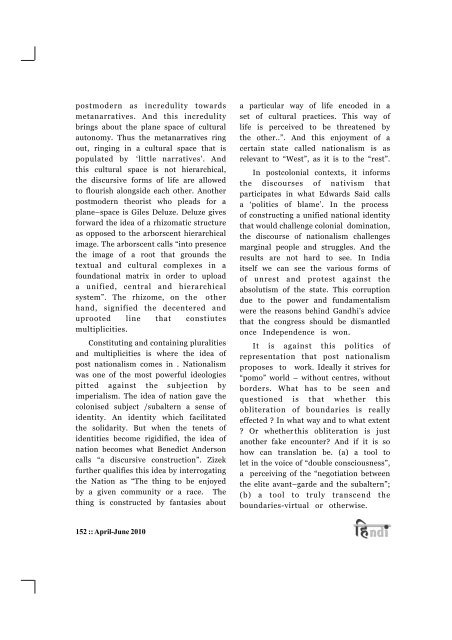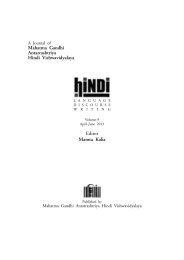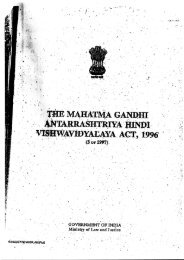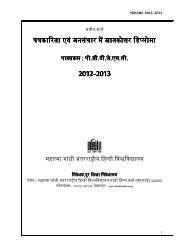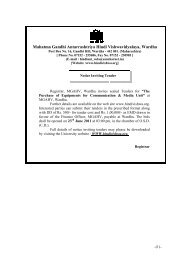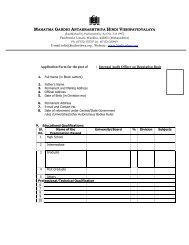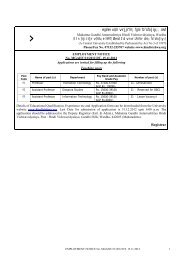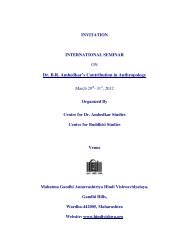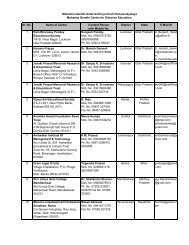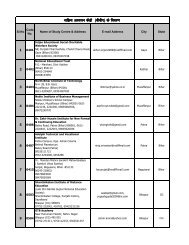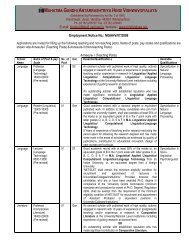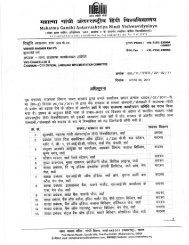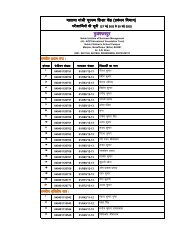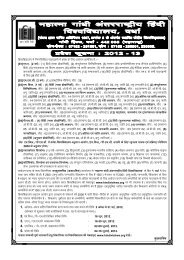Mamta Kalia
Mamta Kalia
Mamta Kalia
Create successful ePaper yourself
Turn your PDF publications into a flip-book with our unique Google optimized e-Paper software.
postmodern as incredulity towards<br />
metanarratives. And this incredulity<br />
brings about the plane space of cultural<br />
autonomy. Thus the metanarratives ring<br />
out, ringing in a cultural space that is<br />
populated by ‘little narratives’. And<br />
this cultural space is not hierarchical,<br />
the discursive forms of life are allowed<br />
to flourish alongside each other. Another<br />
postmodern theorist who pleads for a<br />
plane–space is Giles Deluze. Deluze gives<br />
forward the idea of a rhizomatic structure<br />
as opposed to the arborscent hierarchical<br />
image. The arborscent calls “into presence<br />
the image of a root that grounds the<br />
textual and cultural complexes in a<br />
foundational matrix in order to upload<br />
a unified, central and hierarchical<br />
system”. The rhizome, on the other<br />
hand, signified the decentered and<br />
uprooted line that constiutes<br />
multiplicities.<br />
Constituting and containing pluralities<br />
and multiplicities is where the idea of<br />
post nationalism comes in . Nationalism<br />
was one of the most powerful ideologies<br />
pitted against the subjection by<br />
imperialism. The idea of nation gave the<br />
colonised subject /subaltern a sense of<br />
identity. An identity which facilitated<br />
the solidarity. But when the tenets of<br />
identities become rigidified, the idea of<br />
nation becomes what Benedict Anderson<br />
calls “a discursive construction”. Zizek<br />
further qualifies this idea by interrogating<br />
the Nation as “The thing to be enjoyed<br />
by a given community or a race. The<br />
thing is constructed by fantasies about<br />
152 :: April-June 2010<br />
a particular way of life encoded in a<br />
set of cultural practices. This way of<br />
life is perceived to be threatened by<br />
the other..”. And this enjoyment of a<br />
certain state called nationalism is as<br />
relevant to “West”, as it is to the “rest”.<br />
In postcolonial contexts, it informs<br />
the discourses of nativism that<br />
participates in what Edwards Said calls<br />
a ‘politics of blame’. In the process<br />
of constructing a unified national identity<br />
that would challenge colonial domination,<br />
the discourse of nationalism challenges<br />
marginal people and struggles. And the<br />
results are not hard to see. In India<br />
itself we can see the various forms of<br />
of unrest and protest against the<br />
absolutism of the state. This corruption<br />
due to the power and fundamentalism<br />
were the reasons behind Gandhi’s advice<br />
that the congress should be dismantled<br />
once Independence is won.<br />
It is against this politics of<br />
representation that post nationalism<br />
proposes to work. Ideally it strives for<br />
“pomo” world – without centres, without<br />
borders. What has to be seen and<br />
questioned is that whether this<br />
obliteration of boundaries is really<br />
effected ? In what way and to what extent<br />
? Or whether this obliteration is just<br />
another fake encounter? And if it is so<br />
how can translation be. (a) a tool to<br />
let in the voice of “double consciousness”,<br />
a perceiving of the “negotiation between<br />
the elite avant–garde and the subaltern”;<br />
(b) a tool to truly transcend the<br />
boundaries-virtual or otherwise.


